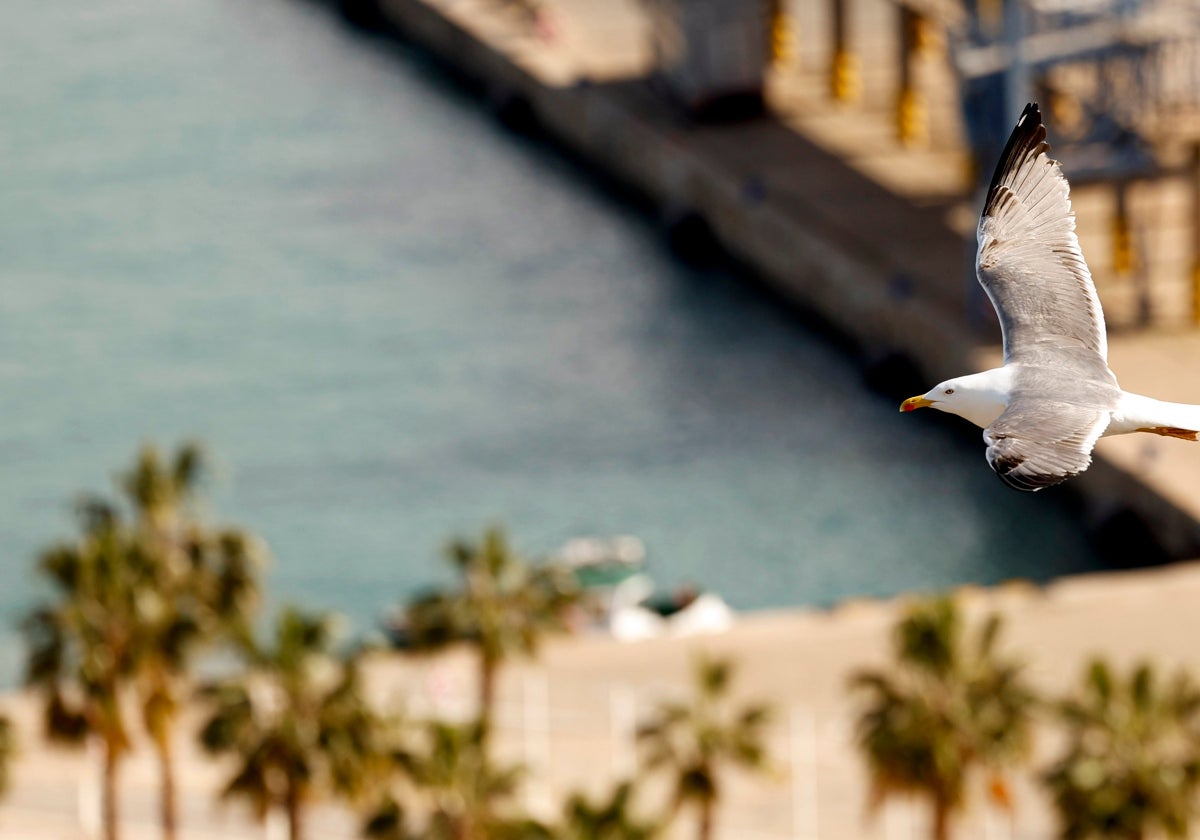Malaga port aims to keep seagulls, pigeons and parakeets at bay by using birds of prey, traps or other measures
A pest control contract has been put out to tender, which also covers animals arriving from foreign ports that fail to meet legal requirements
The excessive proliferation of seagulls, parakeets and pigeons interferes with port activities in Malaga city, which is why the Port Authority has put out to tender a one-year contract, worth 50,500 euros, concerning the control of populations of invasive birds.
The contract includes a wide range of tasks: control and reduction of the bird population through the use of birds of prey, cages, nets and, where appropriate, shooting; supervision of natural repopulation through regular censuses; removal of nests and eggs; disposal of dead animals; supervision of pruning work where nests, eggs or chicks are present; control of pets that may, as a result, be held at access checkpoints; monitoring and reporting on the condition of feral cats; running awareness campaigns; installing additional control measures (anti-pigeon spikes, etc.); and advising on the adoption of preventive or improvement measures for overall wildlife control.
Pigeons
The area concerned is the entire public port facility. According to the contract, the first target is the rock pigeon (Columba livia). The actions included in their control are: use of birds of prey and then, if this proves to be ineffective, "removal of nests and eggs in buildings and areas that pose a risk to the health and/or safety of people", as well as "sporadic capture of live or dead adults or chicks".
Gulls, turtle doves and monk parrots
In the case of the yellow-legged gull (Larus michahellis), the turtle dove (Streptopelia decaocto), the monk parakeet (Myiospsitta monachus) and the rose-ringed parakeet (Psittacula krameri), the same alternatives are proposed as in the previous instances. For the latter, actions go a little further. The authorised measures will be those established in the plan for the control and eradication of exotic parrot species in Andalucía drawn up by the regional ministry of the environment. These include shooting with gas or compressed air carbines by expert marksmen, preferably during the mating and nesting period of the parakeets. Dead specimens will be properly eliminated or transferred to scientific institutions.
Control of nesting
The removal of monk parakeet nests will only take place once population control efforts have proven effective, ensuring that the nests will not be rebuilt. Removing nests too early tends to result either in the birds repairing the structures, often causing greater damage to nearby vegetation, or simply replacing the eggs.
As for rose-ringed parakeets, which nest in tree hollows, the action will include closing or filling the hollows to prevent their use. "The captured specimens will be moved in a confined and safe manner to be slaughtered and disposed of, in accordance with the sectoral regulations in force and animal welfare regulations."
Marking or hunting
Birds of prey can be used as markers, deterrents or for hunting if necessary. In addition, the whole known arsenal of mechanical, electronic and electrical tools (steel spikes, sounds...) is incorporated.
The contract also includes the control of the entry of pets from non-EU countries that do not meet the requirements of the current legislation. In such cases, measures are established for the accommodation of the animal until a decision is taken on the final destination of the animal.
The successful bidder must have, at all times, at least four birds of prey such as falcons, sparrowhawks and eagles. "However, any other species of raptors will be considered as long as their suitability is justified."


Comentar es una ventaja exclusiva para registrados
¿Ya eres registrado?
Inicia sesiónNecesitas ser suscriptor para poder responder.
Necesitas ser suscriptor para poder votar.